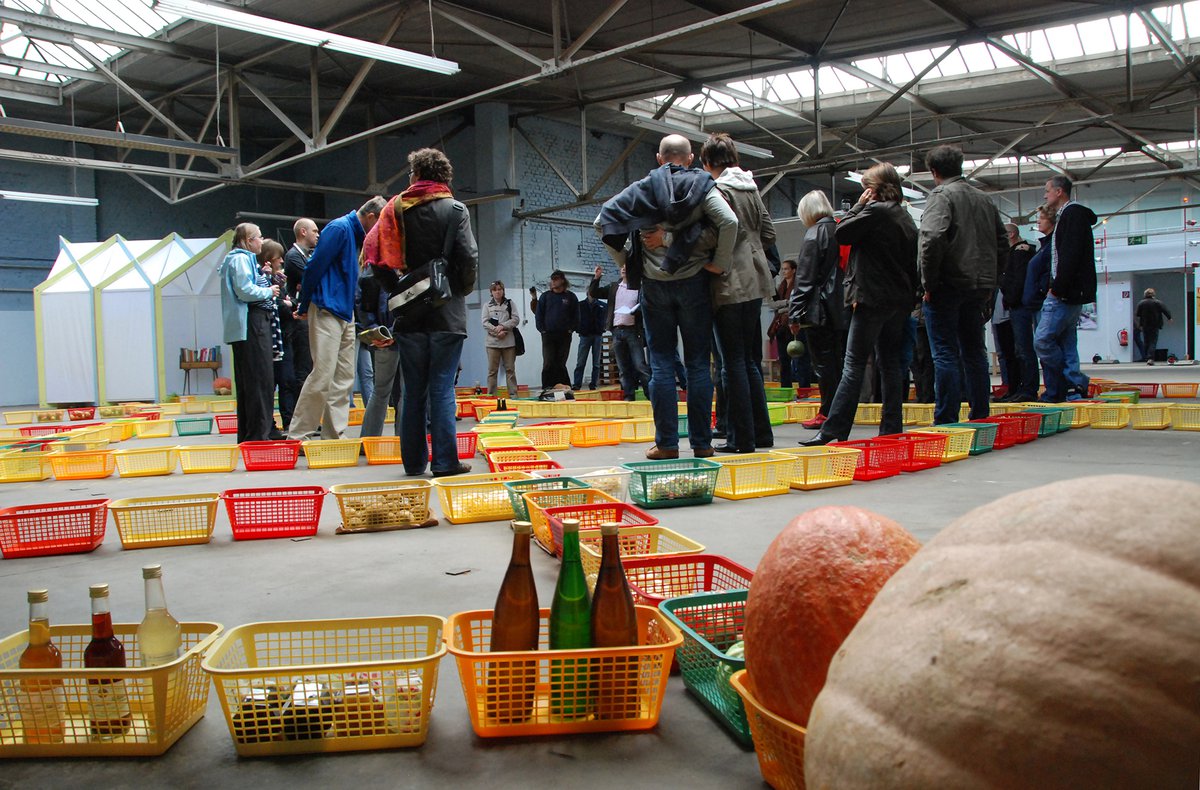2020-Jan-21 : Paper accepted for Anthropology & Geography conference
Katrin Bohn will be presenting at the Anthropology and Geography: Dialogues Past, Present, and Future conference in London later this year. Her abstract was accepted for the panel Mapping the Edible City: Making visible communities and food in the city which she is also co-convening with Dr Ferne Edwards (RMIT), Prof Andre Viljoen (University of Brighton) and Prof Kevin Morgan (Cardiff University).
Katrin’s contribution, co-authored with Ferne Edwards, is titled A short history of food mapping and aims to create one of the first pieces of academic writing on food mapping as a cross-disciplinary technique within urban design, geography and anthropology. It will also provide context to the conference panel as a whole.
Katrin’s contribution, co-authored with Ferne Edwards, is titled A short history of food mapping and aims to create one of the first pieces of academic writing on food mapping as a cross-disciplinary technique within urban design, geography and anthropology. It will also provide context to the conference panel as a whole.

Mapping food and its producers in an urban district in the City of Cologne, Germany, as part of the DQE urban generation project Urbane Agrikultur in Köln-Ehrenfeld. (image: Dirk Melzer 2011)
Here follow extracts from our abstract:
‘Traditional mapping practices have drastically changed in recent years from having an apolitical, authorative voice. Enabled by new technologies and varying visualisation methods, maps are no longer singular, static or reductive but instead are being transformed to make visible and to empower by engaging different perspectives, subjects and tempos. […] Often, the new mapping practices enable – and are enabled by – a new way of approaching contemporary urban issues. Urban food practices, a topic of increasing interest to all, anthropology, geography and urban design due to increasing urbanisation, environmental concerns and a desire to reconnect to nature and to one’s food source, are also prolific in uptaking new mapping styles. Using GIS and other forms of artist, participatory and community mapping, amongst others, food mapping provides a rich arena in which to apply mapping as a tool to communicate new ways of understanding urban space, identities, relationships, alternative economies, mobilities and connections across the city and beyond. This paper explores the yet young history of food mapping from anthropology and urban design perspectives with the aim to establish a first systematic overview of food mapping’s visual outputs and production processes. […]’
‘Traditional mapping practices have drastically changed in recent years from having an apolitical, authorative voice. Enabled by new technologies and varying visualisation methods, maps are no longer singular, static or reductive but instead are being transformed to make visible and to empower by engaging different perspectives, subjects and tempos. […] Often, the new mapping practices enable – and are enabled by – a new way of approaching contemporary urban issues. Urban food practices, a topic of increasing interest to all, anthropology, geography and urban design due to increasing urbanisation, environmental concerns and a desire to reconnect to nature and to one’s food source, are also prolific in uptaking new mapping styles. Using GIS and other forms of artist, participatory and community mapping, amongst others, food mapping provides a rich arena in which to apply mapping as a tool to communicate new ways of understanding urban space, identities, relationships, alternative economies, mobilities and connections across the city and beyond. This paper explores the yet young history of food mapping from anthropology and urban design perspectives with the aim to establish a first systematic overview of food mapping’s visual outputs and production processes. […]’
For information on the panel Mapping the Edible City see here.
For further information on the conference see the conference’s website.
For an overview of all our presentations see this presentations list.
To keep up to date with the project's development see our blog Productive Urban Landscapes.
For further information on the conference see the conference’s website.
For an overview of all our presentations see this presentations list.
To keep up to date with the project's development see our blog Productive Urban Landscapes.










